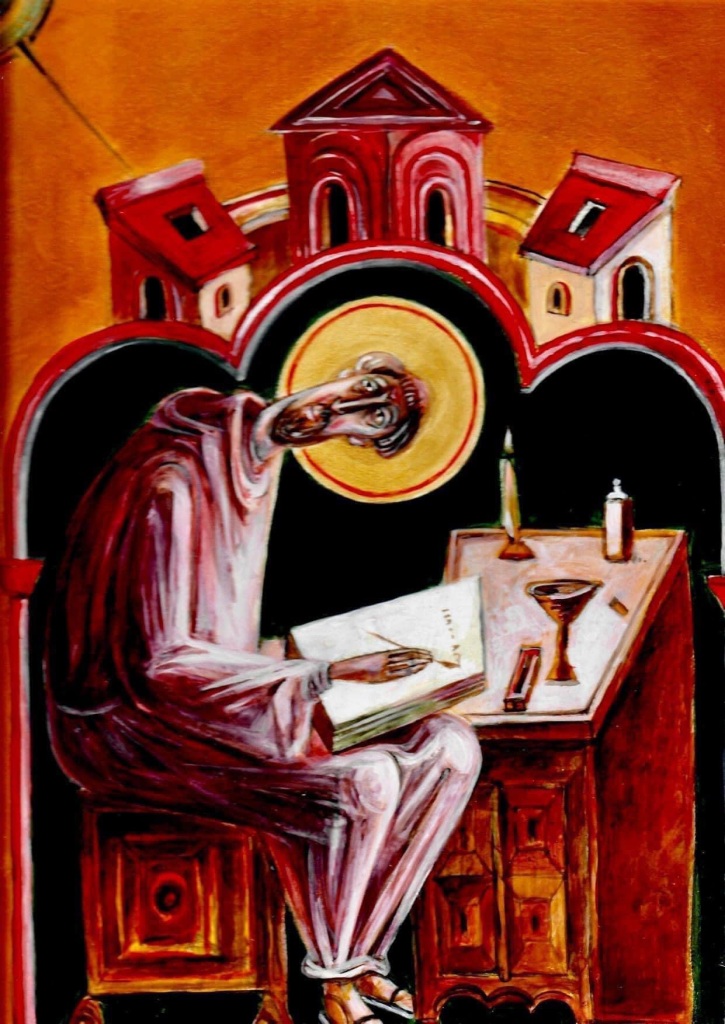
Today the Church remembers an 8th Century Saint who lived an uneventful life (which is what makes him interesting): St. Bede the Venerable, Monk, Priest, and Scholar.
St. Bede, known as “the father of English history,” was born in the late 7th Century near Durham, England. At the age of seven his parents dropped him off at the new monastery in Wearmouth to be educated, and he quickly grew in both learning and stature as being intellectual and wise (a combo that don’t always run in tandem).
He was ordained a Deacon at the age of nineteen, and became a priest at the age of thirty.
St. Bede devoted his life to scholarly pursuits, and could often be found in the monastic library. It is thought that he was the most learned person in Western Europe, and dabbled in history, grammar, metrics, understanding time (still an abstract topic!), and, predictably, the Scriptures.
He wrote An Ecclesiastical History of the English People (in Latin) which remains a primary text for understanding the 6th, 7th, and 8th Centuries of Anglo-Saxon culture and the ascendency of Christianity on the island.
St. Bede received the title of “Venerable” in accordance with the practice of the time as awarding that title to anyone who proved themselves as knowledgeable and holy. For him the title seemed to stick more than others in history.
St. Bede the Venerable died on Ascension Day in the year 735 A.D. while he was in the middle of dictating an English translation of John’s Gospel.
St. Bede is a reminder for me, and should be for everyone, that your life doesn’t need to be remarkable to be remembered.
-historical bits from Pfatteicher’s New Book of Festivals & Commemorations
-icon written by Mull Monastery Icons (in it you can see St. Bede leaning close to the scriptures to listen for God’s voice)
